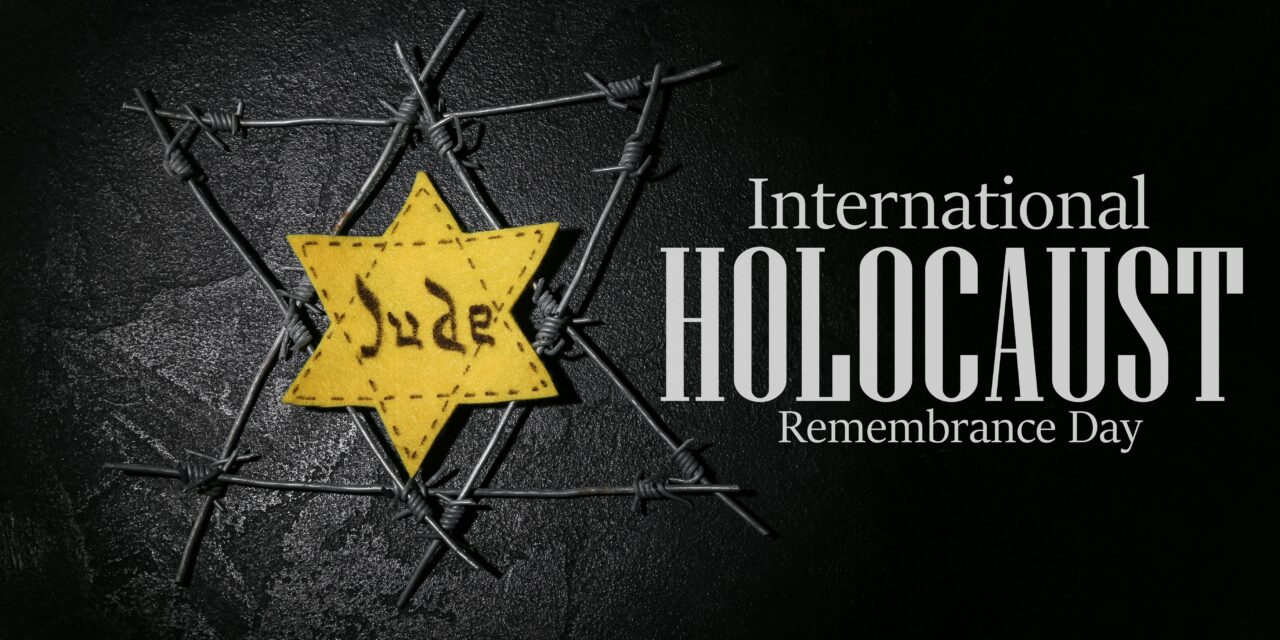Michael Bar-On was born in 1932 in Kraków, Poland, the youngest of eight children in a Hasidic Jewish Family. His community was one were “everyone respected their fellow man,” Bar-On recalls. “We were united and we celebrated the holidays together.”
“All was well,” he says, “until the Germans took over.”
Bar-On’s father was abused by the Germans, who “tore off his beard and sidelocks,” and the family was sent to Międzyrzec Podlaski, where they lived in a stable.
There, his father and mother, Haim and Nechama, died of typhus. The 92-year-old breaks down crying as he recalls his father’s last words:
Children, try to remain good Jews and follow the path of Torah and God.
Bar-On, his brother Elimeleh and sister Aliza eventually escaped Poland and made their way – through Hungary, Romania, Turkey, Syria and Lebanon – to the Land of Israel, “From hell to paradise.”
Bar-On was one of six Holocaust survivors whose stories were told in Jerusalem on Yom HaShoah, Holocaust Martyrs’ and Heroes’ Remembrance Day. Each survivor lit a torch at Yad Vashem, The World Holocaust Remembrance Center.
The six torches represent the six million Jews murdered by the Nazi regime.
Yom HaShoah was marked by official ceremonies at Yad Vashem, The World Holocaust Remembrance Center in Jerusalem.
The annual commemoration of Yom HaShoah took place this year from sundown May 5 through May 6, just seven months after Israel suffered a vicious attack by the terrorist group Hamas, which killed more than 1,300 Israelis. It was the worst attack on Jews since the Holocaust, with hundreds more raped and kidnapped; Hamas still holds 132 hostages.
Yad Vashem gives an overview of the Remembrance Day in Israel:
It is a solemn day, beginning at sunset on the 27th of the month of Nisan and ending the following evening, according to the traditional Jewish custom of marking a day. Places of entertainment are closed, and memorial ceremonies are held throughout the country. The central ceremonies, in the evening and the following morning, are held at Yad Vashem and are broadcast live.
Marking the start of the day, in the presence of the President of the State of Israel and the Prime Minister, dignitaries, survivors, children of survivors and their families, gather together with the general public to take part in the memorial ceremony.
The next morning, the Remembrance Center explains, the whole country comes to a halt, as sirens sound for two minutes:
For the duration of the sounding, work is halted, people walking in the streets stop, cars pull off to the side of the road and everybody stands at silent attention in reverence to the victims of the Holocaust.
Then, Yad Vashem says, wreaths are laid at the foot of each torch “by dignitaries and the representatives of survivor groups and institutions.”
Yad Vashem Chair Dani Dayan told the news publication eJewishPhilanthropy (eJP) that, although the ceremony was the same as in previous years, the Hamas attack cast a pall over the remembrance:
This Yom HaShoah will be different. Although the formal parts will be the same – we introduced no changes to the official ceremony … Israeli society will mark this Yom HaShoah differently because it is a traumatized society.
Allegra Gutta was another survivor whose story was documented for the Remembrance Day. Born in Benghazi, Libya in 1928, her parents and nine siblings were deported by the Italians to the Giado concentration camp. She said:
We were in the Giado camp for one year and two months. The overcrowding was terrible, and we were starving. Many contracted diseases that broke out due to the contamination, such as typhus spread by lice. I took care of patients every day, including my father, who contracted typhus.
Her father, Vittoria Naim, “her younger sister Fortune, and her older sister Jamila were among the hundreds of Jews who succumbed to typhus at Giado. Their bodies were left at the camp without a burial ceremony or a marked grave.”
She and her family fled to Italy in 1948 and then to Israel.
Gutta told eJP how the Hamas attack affected her:
I came to Israel, married, had a son and daughter, I wanted to raise them for the glory of Israel and to be safe and strong, not like us who were afraid and fearful.
When I came here, I saw this as the safest place in the world. But after what happened Oct. 7, I am afraid. …What happened on Oct. 7 sent me back [to the days of the Holocaust].
The news outlet reported:
She said that before the Hamas attack she rarely spoke about her own experiences during the Holocaust because she wanted her children to grow strong and secure and had not considered participating in these types of ceremonies, but the atrocities and the subsequent increasing feeling of antisemitism in demonstrations around the world propelled her to take part.
Despite the comparisons to the Holocaust, there are significant differences, said Dayan, a former Israeli ambassador to Guatemala and Brazil. He told eJP:
Throughout the decades that have passed since the Holocaust, we assured time after time: “Never again,” and we swore that the Jewish people would never again stand defenseless and unprotected.
Dayan quoted another Holocaust survivor, Naftali Furst, who assured his granddaughter after the October 7 massacre, “This is similar, it’s terrifying, there are no words to describe this cruelty, but it’s not the same thing. It’s not a Holocaust. There won’t be a second Holocaust.”
Related articles and resources:
Yad Vasham – The World Holocaust Remembrance Center:
Broadcast of Holocaust Remembrance Day 2024
A Stunning Contrast of Two University Lawns
Jewish Students Urged to Flee Columbia Following Antisemitic Protest
Campus Protests Expose Antisemitic Rot in Academia
Iran’s Failed Attack on Israel — What happened and Why It’s Important
Antisemitism — What It Is and Its Connection to the Israel-Hamas War
Women’s Rights Group Silent on Hamas Sexual Violence, Analysis Shows
Image from Shutterstock.






